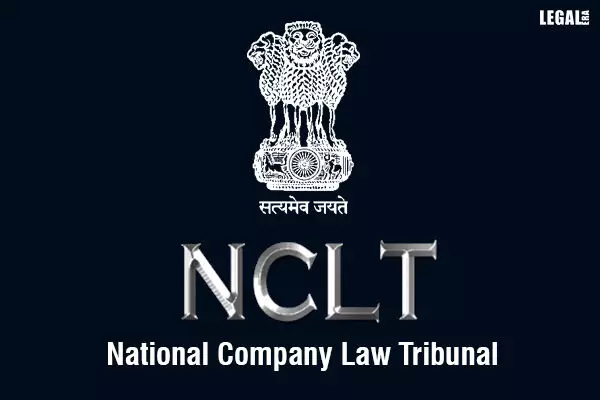- Home
- News
- Articles+
- Aerospace
- Artificial Intelligence
- Agriculture
- Alternate Dispute Resolution
- Arbitration & Mediation
- Banking and Finance
- Bankruptcy
- Book Review
- Bribery & Corruption
- Commercial Litigation
- Competition Law
- Conference Reports
- Consumer Products
- Contract
- Corporate Governance
- Corporate Law
- Covid-19
- Cryptocurrency
- Cybersecurity
- Data Protection
- Defence
- Digital Economy
- E-commerce
- Employment Law
- Energy and Natural Resources
- Entertainment and Sports Law
- Environmental Law
- Environmental, Social, and Governance
- Foreign Direct Investment
- Food and Beverage
- Gaming
- Health Care
- IBC Diaries
- In Focus
- Inclusion & Diversity
- Insurance Law
- Intellectual Property
- International Law
- IP & Tech Era
- Know the Law
- Labour Laws
- Law & Policy and Regulation
- Litigation
- Litigation Funding
- Manufacturing
- Mergers & Acquisitions
- NFTs
- Privacy
- Private Equity
- Project Finance
- Real Estate
- Risk and Compliance
- Student Corner
- Take On Board
- Tax
- Technology Media and Telecom
- Tributes
- Viewpoint
- Zoom In
- Law Firms
- In-House
- Rankings
- E-Magazine
- Legal Era TV
- Events
- Middle East
- Africa
- News
- Articles
- Aerospace
- Artificial Intelligence
- Agriculture
- Alternate Dispute Resolution
- Arbitration & Mediation
- Banking and Finance
- Bankruptcy
- Book Review
- Bribery & Corruption
- Commercial Litigation
- Competition Law
- Conference Reports
- Consumer Products
- Contract
- Corporate Governance
- Corporate Law
- Covid-19
- Cryptocurrency
- Cybersecurity
- Data Protection
- Defence
- Digital Economy
- E-commerce
- Employment Law
- Energy and Natural Resources
- Entertainment and Sports Law
- Environmental Law
- Environmental, Social, and Governance
- Foreign Direct Investment
- Food and Beverage
- Gaming
- Health Care
- IBC Diaries
- In Focus
- Inclusion & Diversity
- Insurance Law
- Intellectual Property
- International Law
- IP & Tech Era
- Know the Law
- Labour Laws
- Law & Policy and Regulation
- Litigation
- Litigation Funding
- Manufacturing
- Mergers & Acquisitions
- NFTs
- Privacy
- Private Equity
- Project Finance
- Real Estate
- Risk and Compliance
- Student Corner
- Take On Board
- Tax
- Technology Media and Telecom
- Tributes
- Viewpoint
- Zoom In
- Law Firms
- In-House
- Rankings
- E-Magazine
- Legal Era TV
- Events
- Middle East
- Africa
NCLT Mumbai: Claims Barred Post CoC Approval, Despite Pending Adjudication Under Section 31 Of IBC

NCLT Mumbai: Claims Barred Post CoC Approval, Despite Pending Adjudication Under Section 31 Of IBC
The National Company Law Tribunal (NCLT), Mumbai Bench, comprising Mr. Kuldip Kumar Kareer (Judicial Member) and Mr. Anil Raj Chellan (Technical Member), has ruled that claims cannot be accepted subsequent to the Committee of Creditors (CoC) approving the resolution plan, even if the approval from the Adjudicating Authority under Section 31 of the Insolvency and Bankruptcy Code, 2016 (the Code) is pending.
CIRP was initiated against M/s. Monarch Brookefields LLP (Corporate Debtor) via an NCLT order dated 27 September 2019. Following this, the Interim Resolution Professional released a public announcement on 24 November 2019, calling for claims as per regulation 6 of the IBBI (Insolvency Resolution Process for Corporate Persons) Regulations, 2016, with the deadline for claim submission set for 7 December 2019.
In November 2021, Mr. Jai Kumar Rai and Mrs. Supriya Saxena ("Applicants") submitted their claim amounting to Rs. 98,83,932, inclusive of interest, to the Resolution Professional, Mr. Arun Kapoor ("Respondent"). The claim was declined by the respondent, citing tardiness in submission and the resolution plan's prior approval by the CoC.
Relying on the precedent set by the National Company Law Appellate Tribunal (NCLAT) in the matter of Puneet Kaur v. K.V. Developers Pvt. Ltd., the applicants contended that despite the belated submission of their claim, it should have been reviewed and incorporated into the information memorandum prepared by the respondent.
Conversely, the Respondent drew upon rulings from the Supreme Court of India, notably in M/s R.P.S Infrastructure Limited v. Mukul Kumar and Anr. and Committee of Creditors of Essar Steel India Limited v. Satish Kumar Gupta and Ors., asserting that a Resolution Professional cannot be compelled to entertain claims submitted subsequent to the CoC's ratification of the Resolution Plan.
The NCLT observed that the Corporate Insolvency Resolution Process (CIRP) must adhere to strict timeframes to effectively realize the objective of maximizing value for all creditors. It emphasized that the absence of adjudicating authority approval does not justify a back-and-forth approach to the plan, as this would perpetuate an indefinite CIRP, contrary to its intended purpose.
The NCLT determined that, in light of the ruling in R.P.S. Infrastructure Ltd. v. Mukul Kumar & Anr., the precedents cited by the applicants no longer retain their legal standing.
Therefore, after carefully considering the precedents cited by the respondent, the NCLT concluded:
"Having duly considered the legal precedents established by the Hon'ble Supreme Court, as elaborated above, we are of the firm opinion that the applicant's claim cannot be entertained at such a delayed juncture, especially when the resolution plan has garnered unanimous approval from the Committee of Creditors and awaits confirmation from the Adjudicating Authority. At this stage, introducing unresolved claim(s) could disrupt the successful resolution process."
In conclusion, the NCLT ruled that the claim could not be considered, given that the resolution plan had already received approval from the CoC and awaited confirmation from the adjudicating authority. Consequently, the application filed by the applicants was dismissed.



